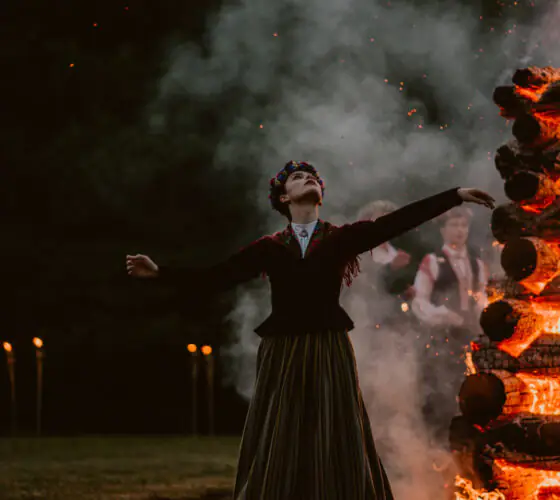
www.hollywoodreporter.com
“Babylon” is an epic drama about the arrival of sound in cinema and the forced farewell to the silent era. It is set in 1930s Hollywood. The very first sound film, “The Jazz Singer”, draws packed houses and people flock to the cinemas to see the miracle of moving pictures on screen.
How do the stars of silent cinema, who have been left behind due to technological developments, feel during this period? “Babylon tells this story through three main storylines.
Three hours seems enough time to discover the characters’ stories. Except that the filmmakers have failed to do so. The story centers around Brad Pitt portraying the dying star Jack Conrod and Margot Robbie as the brave and desperate silent film conqueror Nellie Laroy. Story is based on real events.
There is a third – unexpectedly interesting – character: Manny Torres, played by the little-known Mexican actor Diego Calva Hernandez. The film’s director, Damien Chazelle, spent two years looking for the right character and Hernandez lived up to his expectations. In film, he embodies the new wave of producers who can not only compete with the sound cinema era, but also succeed in it.
Babylon also sketches out plot branches with the characters of Jovan Adepo and Li Jun Li, but it is done in a perfunctory way, like hastily pencil sketched drawing.

www.hollywoodreporter.com
Expectations were high for director Damien Chazelle, who gave audiences such Oscars worthy masterpieces as “Whiplash”, “La La Land” and “First Man”. Perhaps past achievements have set the bar too high. Schazel’s ambitious idea was immediately welcomed by Hollywood producers, even though a decade earlier the film would have been simply unaffordable and beyond his reach. And it’s not about the money but about Schazel’s growth as a director. His previous films are a kind of ladder that should have led him to something unexpected and challenging. Something that Babylon should have been but wasn’t.
The first 20 minutes of the film are probably the most exciting. Crazy Hollywood parties, alcohol and cocaine, orgies on every corner. However, it is impossible to stretch all the drive and emotional intensity of the opening throughout all three hours of the film. Of course, there is passion (but only a little), and it all comes to a rather thrilling climax. However, this turns out to be not enough: after all the tension, rest of the action seems flat and boring. What happens to the characters is clear and obvious; no stunning plot twists are to be expected here.
However, this is not what is most disappointing. The passion and unbridled madness with which the film begins gradually fades. And while the film undeniably has ambition (elephant shots, epic battle or the pavilion scenes are worth it), it fails to surprise the viewer in a way that takes breath away. And that’s not a bad thing if the film has no such aim to begin with. Unfortunately, Babylon has one: it set a goal, but failed to achieve it.

www.hollywoodreporter.com
Babylon was expected to be among the nominees for the top “Oscar” prize in the Best Picture category. The shortlist was announced, the lists were published, and Chazelle was left disappointed. But the film was given “consolation” nominations: Best Production Design, Best Soundtrack and Best Costume Design. Obviously, the director did not intend to win an award. After all, Babylon is a film whose title speaks for itself. What is important here is the scope and scale, which the film somehow lacked.
However, there are other aspects of the film to note. The dynamic editing, the interesting angles, set the pace of the film. They keep the pace and the rhythm, as if repeating the main message of the film: life changes too fast, if you don’t know how to adapt, you might end up on the street. Hurry up.
Soundtrack deserves a special praise. The sound is a separate character in the film, which is constantly emphasised. Every noise, hiss, rumble or thump is hypertrophied. Sound not only enters the lives of the characters on screen, it deliberately introduces itself to the audience in the hall. Every breath, the rattle of wheels, the sound of broken splinters – everything is designed to affect the viewer not only visually, but also audibly. The filmmakers repeatedly stressed that this is the most important thing here. However, this attempt was not appreciated by the Golden Globe or Oscar jury members. Nevertheless, the film has a good chance of winning the statue for Justin Gurvich’s compositions (the film has already won a Globe in this category).
“Babel is a kind of explanation of the director’s love for cinema. How many there have been and how many more there will be. However, unlike Spielberg’s recent Fabelman, Schazel’s film does not evoke the same moving and tender feelings in audience.

www.hollywoodreporter.com






